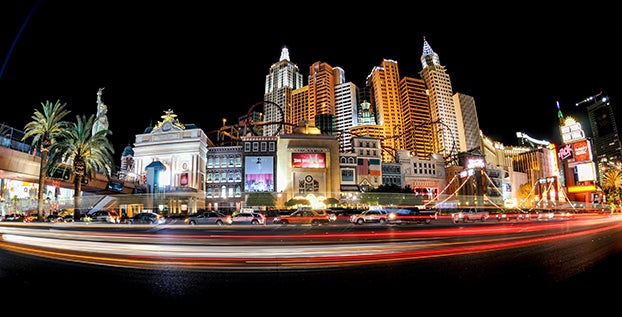The Growing Popularity of Online Casino Gambling: A Historical Perspective
Published 11:08 am Monday, July 31, 2023
|
Getting your Trinity Audio player ready...
|
Casinos have long been synonymous with excitement, risk, and the allure of potential riches. From ancient civilizations rolling dice to modern online platforms, the history of casinos is a fascinating journey through time. The evolution of gambling, betting and gaming has significantly shaped human culture and entertainment. This article explores the intriguing history of casinos, tracing their roots from ancient times to the published online casinos that have revolutionized the gambling industry.
Ancient Beginnings
The origins of casinos can be traced back to ancient civilizations that engaged in various forms of gambling. Dice games were among the earliest forms of wagering, dating back to Mesopotamia around 3000 BC. Archaeological findings have revealed primitive dice made from bones and stones, suggesting that people from this era engaged in games of chance.
Moving forward, the Chinese are credited with developing the first card games in the 9th century. These early games laid the foundation for the popular card games we enjoy today, such as poker and blackjack. Gambling houses, similar to the modern concept of casinos, began to emerge in China during the 10th century. These establishments allowed people to place bets on various games and activities, marking the earliest form of formalized gambling venues.
European Renaissance and the Birth of Casinos
The concept of casinos, as we recognize them today, started taking shape during the European Renaissance. In Italy during the 17th century, the term “casino” came into use to describe small country villas or summerhouses where pleasurable activities, including gambling, took place. The first official casino, Il Ridotto, opened its doors in Venice in 1638. It offered controlled gambling for the city’s nobility during the carnival season, establishing a model for future gambling establishments.
Over the following centuries, casinos spread across Europe, offering a range of games like roulette, faro and baccarat. The allure of these venues was not only the gambling but also the social interactions they provided. European casinos became hubs for the elite and aristocrats to mingle, adding an element of glamour to the gambling experience.
The American Casino Boom
As European influence expanded, so did the popularity of casinos. In the 19th century, casino culture found its way to the United States. Initially, gambling in America was prevalent in riverboats and frontier towns, with games like poker and blackjack being the main attractions.
However, it was in the early 20th century that the true casino boom took place. Las Vegas, Nevada, emerged as the gambling capital of the world, driven by the legalization of gambling in 1931. The city’s transformation into a desert oasis with grandiose casinos and luxury hotels marked the beginning of modern casino culture.
The Rat Pack era of the 1950s and 1960s further glamorized Las Vegas casinos, drawing in Hollywood stars and musicians who performed regularly. Casinos became not only about gambling but also about entertainment and opulence.
The Digital Revolution: Online Casinos
The turn of the 21st century brought about a significant revolution in the gambling industry – the advent of online casinos. The internet’s proliferation allowed casino games to be accessible to anyone with an internet connection, breaking down geographical barriers and opening up new possibilities for players worldwide.
In the mid-1990s, the first online casinos started to appear, offering a limited selection of games compared to traditional brick-and-mortar casinos. However, technological advancements rapidly improved online casino platforms, making them more sophisticated and user-friendly. Players can now enjoy a wide range of games, from classic card games to innovative slot machines, all from the comfort of their homes.
Modern Developments and the Future
Today, the casino industry continues to evolve. Online casinos have become a dominant force, but traditional land-based casinos still thrive, especially in entertainment destinations like Las Vegas and Macau. These establishments offer a unique and immersive gambling experience that online platforms cannot entirely replicate.






